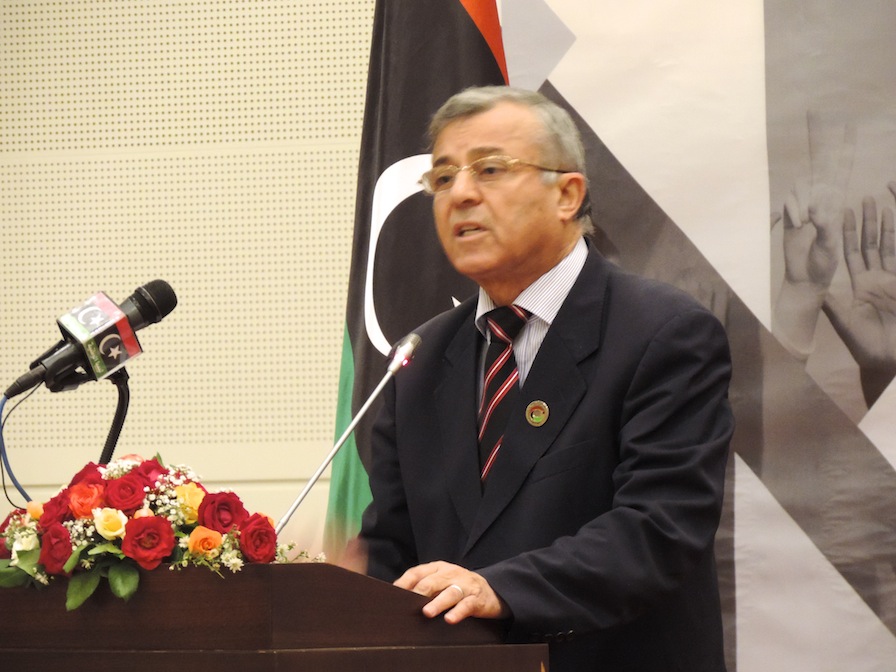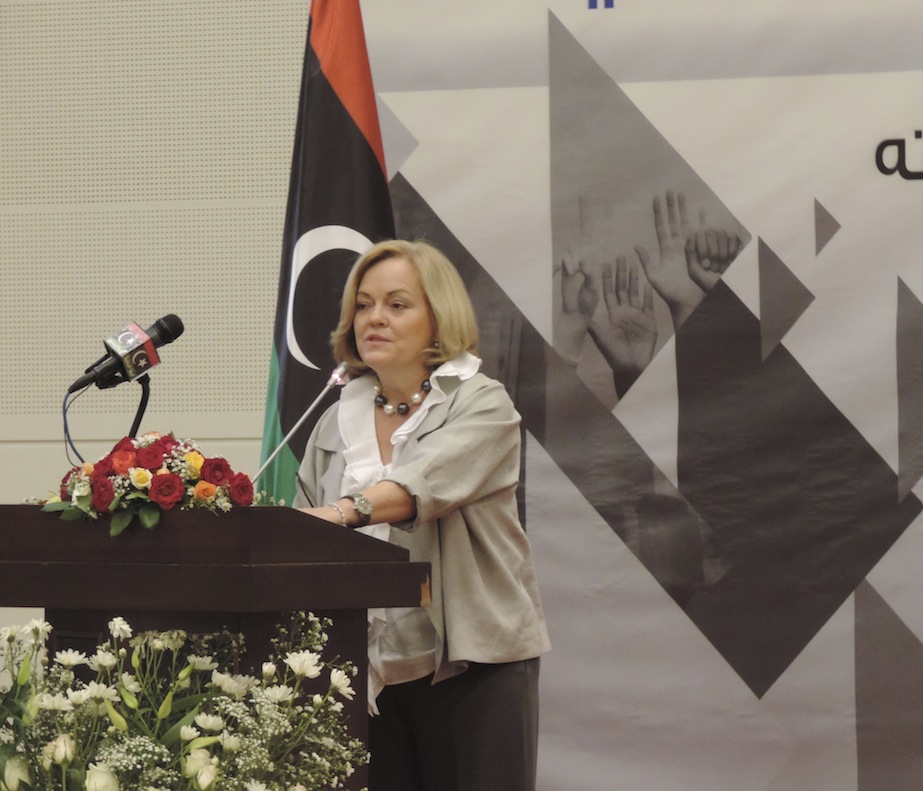By Ashraf Abdul-Wahab.

Tripoli, 30 September 2013:
A conference presenting the Transitional Justice Law to Libyan and international bodies was held in Tripoli . . .[restrict]this morning, Monday, 30 September, in the General National Congress’ conference hall. It was attended by Congress members, several diplomats as well as representatives of civil society organisations.
The President of the General National Congress, Nuri Abu Sahmain, opened the proceedings, explaining the law and stating that a final vote would be taken extremely soon.
The aim of the law, it says in its preamble, is to ensure civil peace, convince people that justice will be implemented, provide compensation for victims of Qaddafi’s regime as well as of the revolution, provide justice and compensation for victims of injustice since the revolution, and promote national reconciliation.
Much of this will be done by the establishment of a Fact-Finding and Reconciliation Board. Based in Tripoli, it will be part of Congress. Among its many tasks, it will look into the position of internally displaced Libyans (such as the people of Tawergha), into the files of missing Libyans as well as of imprisoned Libyans, and investigate attacks on people whether by militias, individuals or state bodies.
Members of the board will have to be over 30, must not have served in any prominent or ideological position in the Qaddafi regime (such a being a member of his Revolutionary Committees) and be fully independent of any party or group.
There will also be a committee to assess compensation, for material as well as “moral” damage. The rights of anyone accused of human rights crimes by the former regime will be guaranteed, the proposed law says, and no one who is a civilian will be tried in a military court.

On Sunday 22 September, with 130 members present, Congress unanimously approved the law in principal, voting on it clause by clause apart from one controversial clause dealing with granting Libyan citizenship to Arabs who had been brought to the country by the Qaddafi regime to fight in his conflicts. That issue await a final decision.
Today, after Abu Sahmain’s opening, there was a speech from the President of the Civil Societies Organisations Association of Misrata followed by one from the US Ambassador to Libya, Deborah Jones, in which she praised the role of civil society organisations and emphasised the importance of equality and justice in dealing with situations such as Libya’s. She stressed that the United States was a firm supporter of seeing the Libyan state and its institutions firmly established and stressed the need for transitional justice if there were to be progress in state-building.
The organising committee showed a short film on the transitional justice project and the UN Representative in Libya Tarek Mitri, stressed that there should be no prisons outside state control – which meant the Ministry of Justice.
The final word was delivered by Anwar Abu-Shawashi on behalf of civil society organisations during which he played video footage of the Transitional Justice Project and on the workshops which had been run by civil society organisations to make people aware of transitional justice, its definition and the ways of applying it. [/restrict]







